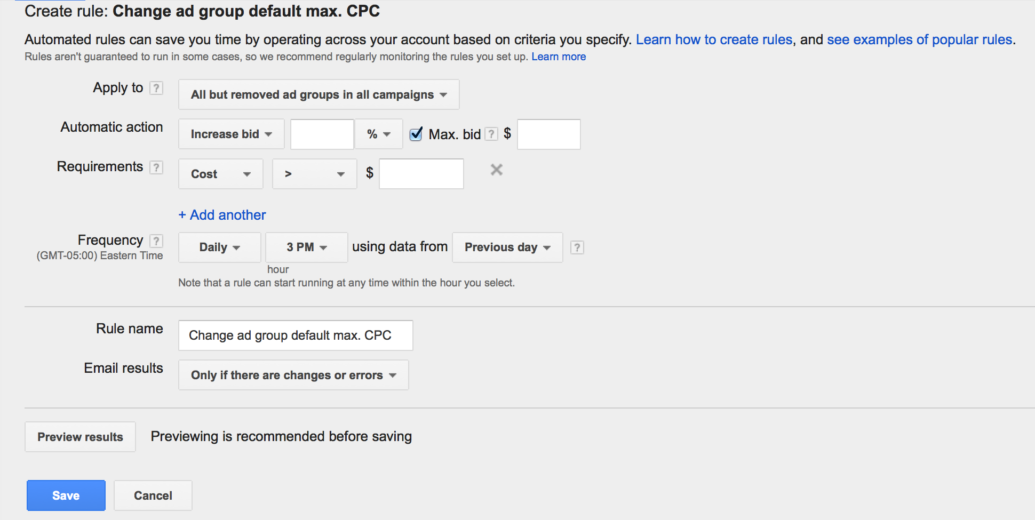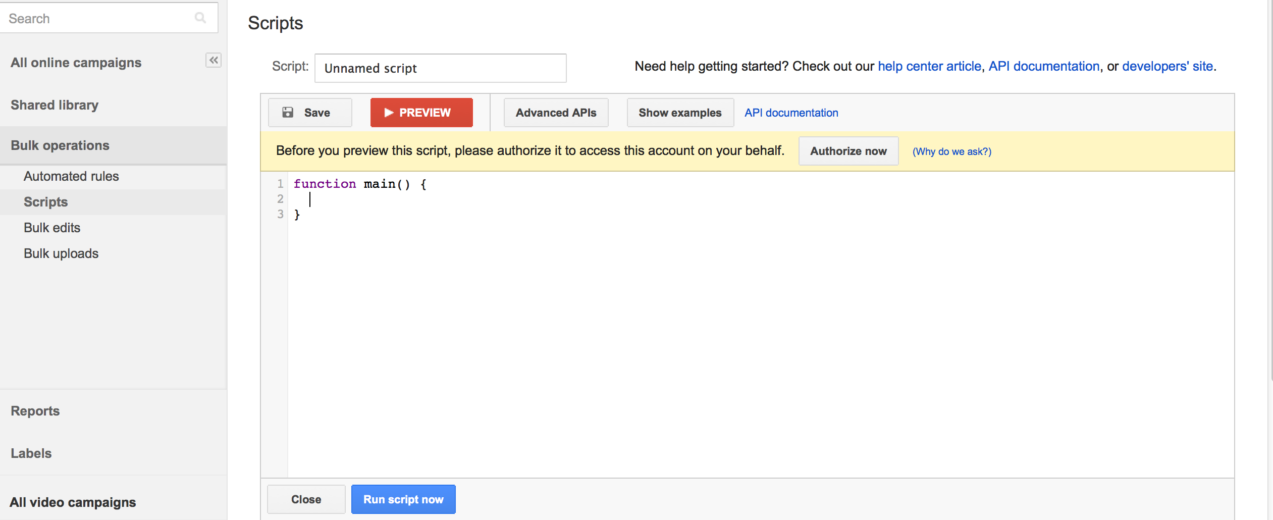2014 is winding down and I’ve begun contemplating the future of PPC. I believe 2015 will be the ‘year of bid and budget automation’. As the business of PPC grows in complexity and the amount of levers that need to be monitored and pulled within accounts increases, it’s not only a need, but also a necessity to automate these two critical areas.
After all, if budgets are not properly managed, business metrics can be severely impacted. Improperly managing bids can lead to missing out on opportunities (not getting enough traffic) or overpaying for keywords, creating negative return on investment.
Today we’re going to discuss why automating bid and budget management is critical to overall paid search account success.
Reason #1 – PPC Budgeting Requirements Are More Complex Than Ever
Pay-per-click account structures have become very sophisticated, leading to more complex budgeting requirements. For instance, many businesses advertise locally which means campaigns need to be budgeted on a geo-targeted basis. An account of this nature usually contains duplicate campaigns, ad groups, and keywords with the difference being that each location’s budgets vary.
Contributing to the complexity of this kind of account structure is that multiple campaigns are needed to fully represent each product or service offering. Manually managing individual budgets, along with ensuring the spend mix by offering within each location is on target, can be a full time job.
How can budgeting be automated so time is freed up to work on other things in our accounts? One method available in Google is called shared budgeting. Shared budgets allows for a series of campaigns to be grouped under one master umbrella. Let’s say you have a $10K budget cap for a geo target and five product offerings. One option is to budget each campaign separately, which means managing five completely separate budgets. Shared budgeting ensures that a location’s overall budget is not overspent, provided each campaign is part of the shared budget.
Reason # 2 – Bidding Is More Complex Than Ever
Manually setting and maintaining a bid strategy is a monumental task. Ever ask yourself questions like ‘Do I target the top of page’? ‘Do I bid up during the day and reduce bids at night’? ‘Do I modify bids based on device such as mobile vs. desktop’? Managing all the various aspects of bidding for a small keyword set is difficult enough, but it’s nearly impossible to manage bids efficiently for medium sized and certainly large keyword sets.
Automating bid management will create efficiency in the process of managing cost’s per click and also free up valuable time to do other things in your account. Some ways to automate the bidding process are:
AdWords Automated Rules: Automated rules provide a basic, yet effective way to manage bids across your keyword list. For instance, bids can be increased or decreased bids based on set criteria. The rules can be defined to run on a one time only, daily, weekly, or monthly basis. The rules are pretty standard and don’t offer much of an ability to customize. However, if you’re looking for an easy way to automate bid management, these rules are a great alternative to manual bidding.
 Example of Google’s bid rule interface
Example of Google’s bid rule interface
AdWords Scripts: AdWords scripts are bits of java code that can be implemented into AdWords accounts to automate account functions. Scripts are available that allow bidding by specific ad position, by factors such as weather, or to lead cost and ROAS goals. Scripts allows for more customized bidding than using a rule or standard tool such as conversion optimizer.
 Example of Adwords Scripts interface
Example of Adwords Scripts interface
3rd Party Bid Management Platforms: Another way to automate is using a bid management platform. The advantage of these platforms is the ability to customize bid strategies and deploy those strategies across multiple search engine and social media platforms without having to do any internal programming. In addition, each provider offers specialized algorithms to help maximize bids through near real time bid adjustments, predictive bidding technologies, and a whole host of other unique features.
Reason #3 – There’s So Many More Levers to Pull and Much More Data to Analyze
Let’s face it; the amount of initiatives to manage within a typical paid search account is much more than ever before. I miss the good old days when all we had to worry about managing was our keyword lists, ads, bids, and budgets. Now we have to make sure we’re managing our remarketing program, uploading and testing ad extensions, optimizing our mobile advertising efforts, and constantly adjusting our product feeds.
Reporting performance and completing data analysis has also become more complex and time consuming. Analyzing performance, drawing conclusions, and developing strategy is the most important thing we can do as pay per click professionals. Our clients depend upon us to provide the insights, context, and backstory of how we met or didn’t meet their goals.
Bid and budget management is extremely important to account success and should not be ignored; therefore it should be automated in order to free up more time to work on the critical tasks of reporting, analysis, and pulling the critical levers that bring positive growth and provide value to our organizations and clients.
Final Words
I sincerely hope 2015 is the year our industry fully embraces automation because the real value we bring is our ability to take overall business goals and translate them into PPC success. Our key stakeholders want us to spend our time diving into the details of how an account got to where it is, where it needs to go, and most importantly, develop and implement strategies that set the stage for future growth. I hope you embrace this way of thinking and use automation to free yourself up to become the master strategist our clients need!



